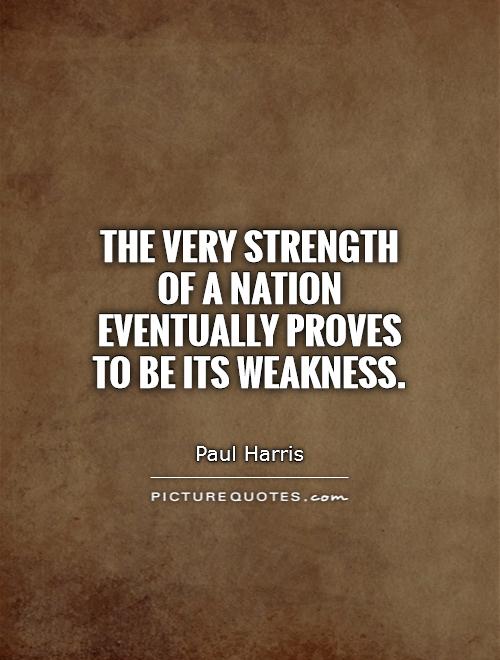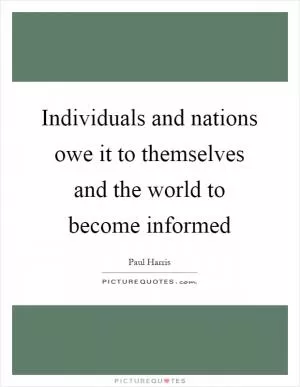The very strength of a nation eventually proves to be its weakness

The very strength of a nation eventually proves to be its weakness
Paul Harris, the founder of Rotary International, once said, “The very strength of a nation eventually proves to be its weakness.” This statement holds a profound truth that can be applied to various aspects of a nation's development and progress. In the context of Paul Harris's words, it can be interpreted as the idea that the very qualities or attributes that make a nation strong and powerful can also lead to its downfall if not managed properly.One way in which this concept can be understood is through the lens of military strength. A nation that possesses a strong and well-equipped military may feel secure and invincible, but this very strength can also lead to overconfidence and aggression. History is replete with examples of powerful nations that have fallen due to their own military might, such as the Roman Empire or the Soviet Union. In these cases, the very strength that once made these nations dominant eventually proved to be their downfall as they overextended themselves and became embroiled in costly and unwinnable conflicts.
Another way in which the idea of the strength of a nation becoming its weakness can be seen is through economic power. A nation that is economically prosperous and technologically advanced may seem unstoppable, but this very prosperity can lead to complacency and a lack of innovation. As other nations catch up and surpass the once-dominant power, its economic strength can quickly erode, leading to decline and stagnation.
Furthermore, the strength of a nation in terms of its political system can also become its weakness. A nation that prides itself on its democratic values and institutions may find itself vulnerable to manipulation and corruption if those in power exploit the system for their own gain. This can lead to a breakdown of trust in the government and a loss of faith in the democratic process, ultimately weakening the nation from within.












 Friendship Quotes
Friendship Quotes Love Quotes
Love Quotes Life Quotes
Life Quotes Funny Quotes
Funny Quotes Motivational Quotes
Motivational Quotes Inspirational Quotes
Inspirational Quotes